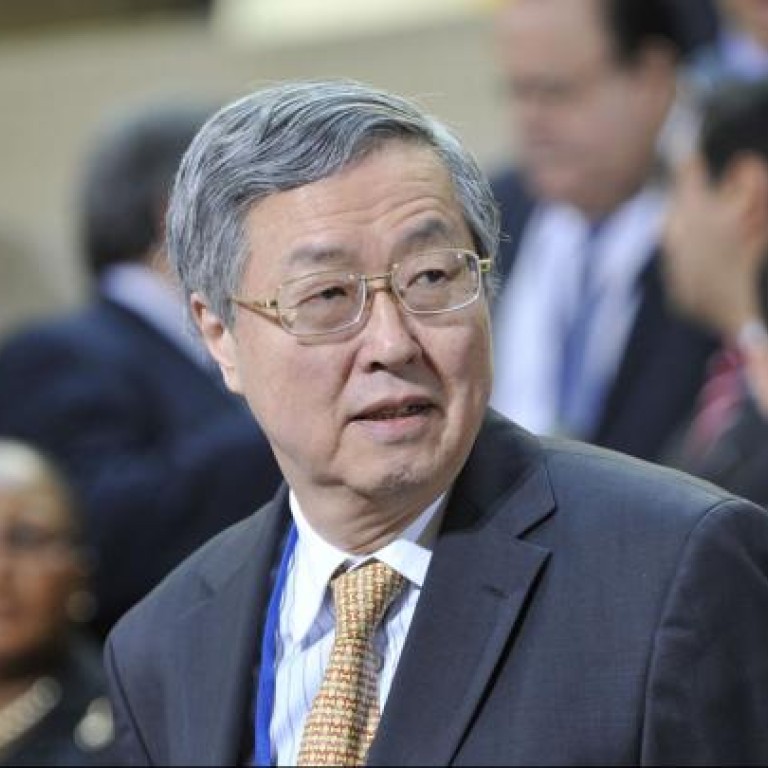
Wider trading band the next logical step in reform of yuan
Beijing has foreshadowed a widening of the trading band of the yuan ahead of meetings of the International Monetary Fund, the World Bank and the G20 summit. This is true to form. The trading band was last widened around last year's financial summits. It is a time when China comes under pressure to allow its currency to rise. But while the move may help deflect criticism from trading partners, it has deeper significance.
Beijing has foreshadowed a widening of the trading band of the yuan ahead of meetings of the International Monetary Fund, the World Bank and the G20 summit. This is true to form. The trading band was last widened around last year's financial summits. It is a time when China comes under pressure to allow its currency to rise. But while the move may help deflect criticism from trading partners, it has deeper significance.
It comes on the heels of the decision to extend the appointment of People's Bank of China governor Zhou Xiaochuan beyond normal retirement age. The two moves reflect the resolve of policymakers to push ahead with financial reforms, and put future economic growth on a sustainable course. The retention of Zhou sends a strong message. He is China's most experienced and respected banker and in charge of internationalisation of the yuan. And the widening of the trading band is about gradual internationalisation of the currency. Zhou's departure at this time would have sparked a round of reshuffles and done nothing for monetary stability at a time of international financial volatility.
Deputy governor of the PBOC Yi Gang told officials in Washington the yuan's trading band - either side of a daily reference rate set by the PBOC - would be widened again soon. Last April it was doubled from 0.5 per cent to 1 per cent either side. Economists expect it will be widened to 1.5 or 2 per cent.
External pressure aside, widening of the yuan trading band is in the best interests of China. In the short term, Beijing will need to tweak monetary and fiscal policies to maintain consumption and domestic employment. In the longer term, the Communist Party will have to endorse more fundamental reforms. These include liberalisation of the banking market, now dominated by the big state banks and state-owned enterprises, and freeing up the flow of capital to small-to-medium private enterprises, the growth engine of employment.
That involves freeing up interest rates and dealing with the worrying growth of the shadow banking market. Almost half the recent growth in credit has taken place in this loosely regulated and largely opaque market, driven largely by corporate and local government borrowers.
Four years after China's economy was propped up during the global financial crisis by huge stimulus through loans, its dependence on credit is becoming unsustainable.

